 Anki
VS
Anki
VS
 recall.cards
recall.cards
Anki
Anki is a sophisticated flashcard application engineered to enhance memory retention and make learning more efficient. Utilizing intelligent algorithms, the program prioritizes material that users find challenging, scheduling reviews based on principles of spaced repetition to ensure long-term recall. This method minimizes time spent on already known information, optimizing study sessions for maximum effectiveness.The platform supports a wide range of content within flashcards, including audio clips, images, videos, and scientific markup (like LaTeX), catering to diverse learning needs across various subjects. Anki offers significant flexibility through customization options for flashcard layouts and review timings, alongside the ability to handle very large decks (over 100,000 cards) smoothly. Its open-source nature encourages community contributions, and synchronization across multiple devices is facilitated via the free AnkiWeb service.
recall.cards
Recall provides a straightforward flashcard platform designed for individuals seeking efficient learning methods. It simplifies the card creation process through its AI Autofill feature, which can automatically generate answers, translations, and text-to-speech audio for terms added by the user.
To optimize long-term memory retention and minimize review time, Recall incorporates a Spaced Repetition System (SRS). This algorithm calculates the ideal intervals for reviewing each flashcard, ensuring users revisit information just before they are likely to forget it, thereby reinforcing learning and reducing overall study workload.
Pricing
Anki Pricing
Anki offers Freemium pricing .
recall.cards Pricing
recall.cards offers Free pricing .
Features
Anki
- Spaced Repetition System: Intelligently schedules card reviews based on recall difficulty to maximize retention.
- Media Support: Incorporate audio, images, videos, and scientific markup (LaTeX) into flashcards.
- Customization: Modify flashcard layouts and review timings.
- Synchronization: Sync decks and progress across multiple devices using the free AnkiWeb service.
- Large Deck Handling: Efficiently manages decks containing over 100,000 cards.
- Extensibility: Enhance functionality with community-developed add-ons.
- Cross-Platform Availability: Available on Windows, macOS, Linux, iOS (AnkiMobile), and Android (AnkiDroid).
recall.cards
- AI Autofill: Automatically generates answers, translations, and text-to-speech audio for flashcards.
- Spaced Repetition System (SRS): Calculates optimal review times for flashcards to enhance long-term memory and reduce study load.
- Simple Interface: Offers an easy-to-use platform for creating and reviewing flashcards.
Use Cases
Anki Use Cases
- Learning a new language.
- Studying for medical and law exams.
- Memorizing geography facts.
- Mastering scientific concepts and formulas.
- Preparing for standardized tests.
- Improving long-term memory for any subject.
recall.cards Use Cases
- Learning a new language.
- Studying for exams.
- Memorizing vocabulary or terminology.
- Improving long-term knowledge retention.
- Efficiently reviewing study material.
Uptime Monitor
Uptime Monitor
Average Uptime
100%
Average Response Time
78.97 ms
Last 30 Days
Uptime Monitor
Average Uptime
100%
Average Response Time
153.53 ms
Last 30 Days
Anki
recall.cards
More Comparisons:
-
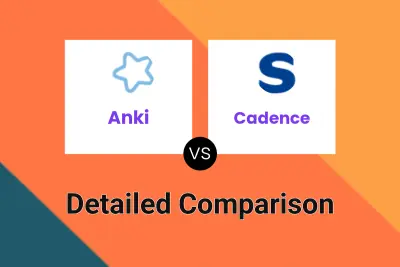
Anki vs Cadence Detailed comparison features, price
ComparisonView details → -

AIFlash.Cards vs recall.cards Detailed comparison features, price
ComparisonView details → -
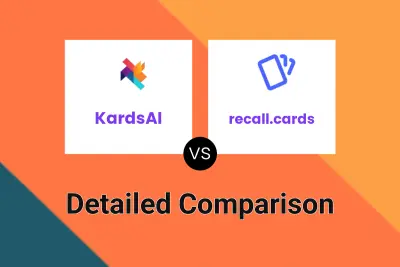
KardsAI vs recall.cards Detailed comparison features, price
ComparisonView details → -
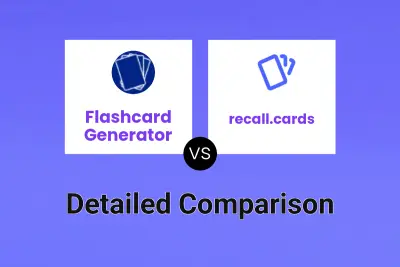
Flashcard Generator vs recall.cards Detailed comparison features, price
ComparisonView details → -
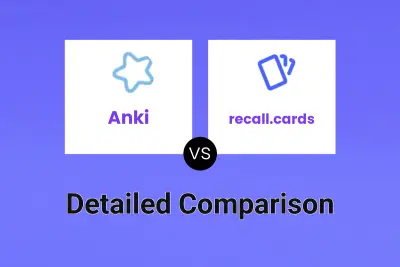
Anki vs recall.cards Detailed comparison features, price
ComparisonView details → -
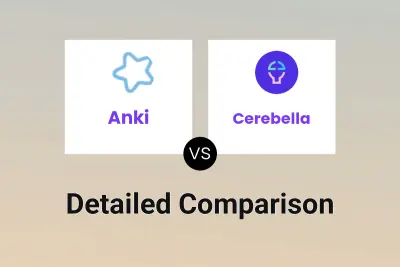
Anki vs Cerebella Detailed comparison features, price
ComparisonView details → -
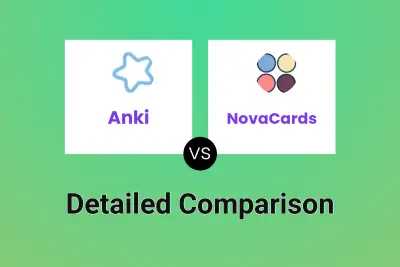
Anki vs NovaCards Detailed comparison features, price
ComparisonView details → -
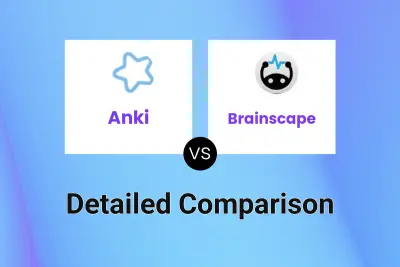
Anki vs Brainscape Detailed comparison features, price
ComparisonView details →
Didn't find tool you were looking for?